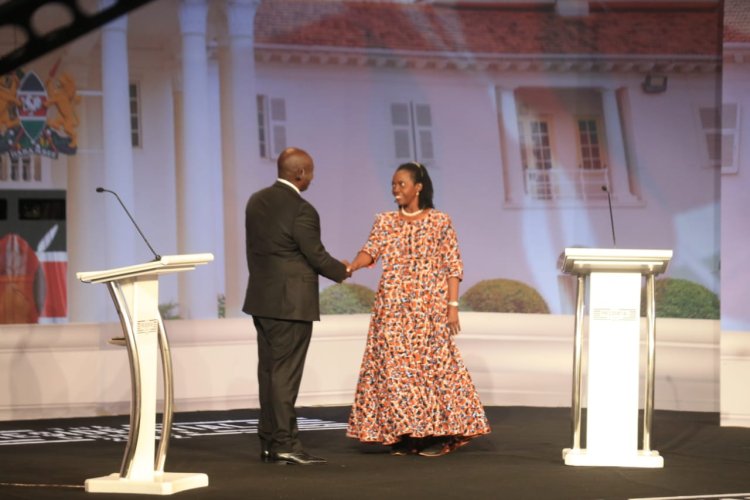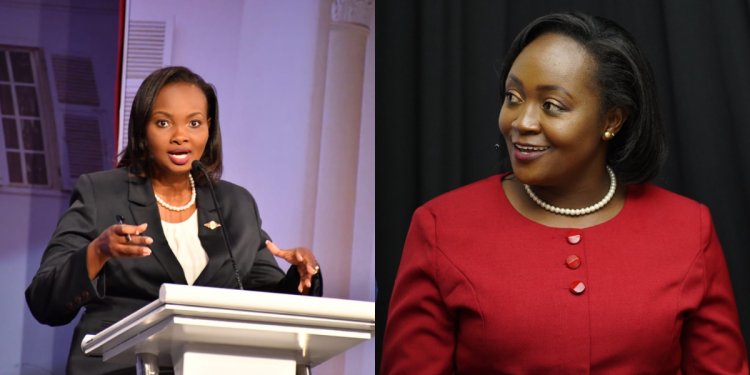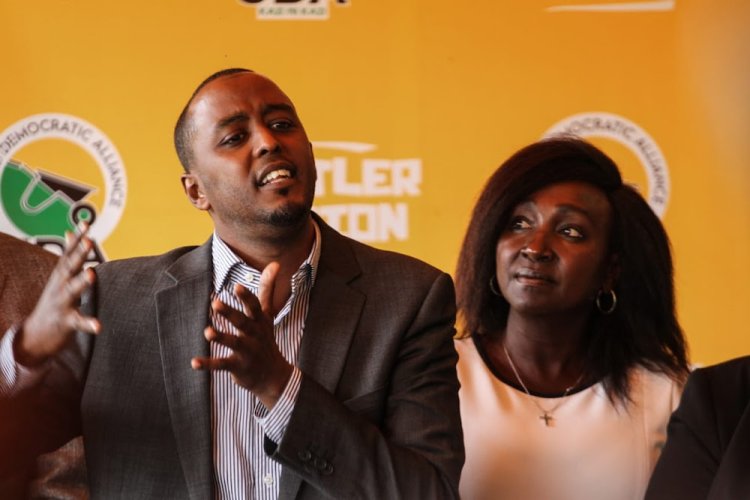MCK: How Many Millions Of Kenyans Watched Deputy Presidential Debate
The survey was carried out a day after the debate and targeted Kenyans above the age of 18

The Media Council of Kenya (MCK) has revealed that 34 million Kenyans watched the deputy presidential debate that took place on Tuesday, July 19.
Out of the 34 million, that is 82 per cent of the country's population, 70 per cent watched the second session of the debate, which featured Azimio la Umoja coalition presidential running mate, Martha Karua against the United Democratic Alliance (UDA) presidential running mate, Rigathi Gachagua.
Five per cent of Kenyans however watched the first session of the debate featuring Justina Wamae of the Roots Party against Ruth Mucheru of the Agano party. 30 per cent watched both debates, with 18.5 million of those who followed the debates being registered voters.

Justina Wamae vs Ruth Mucheru Mutua during the Deputy Presidential Debate. /VIRALTEAKE
76 per cent of those who followed the debates watched them live on television, which translates to three-quarters of the viewers. 19 per cent followed it on the radio while 10 per cent, translating to 3.4 million, followed it on social media platforms.
Seven million Kenyans had accessed their radios and TVs via the internet, with YouTube being the main choice at 65 per cent followed by Facebook at 31 per cent.
"In terms of TV viewership, the findings further indicated that 67 per cent watched the debate on Citizen TV followed by Inooro TV and NTV at 8 per cent each, while KTN and KBC came third at 7 per cent each. On the radio platform, Radio Citizen was most watched at 41 per cent followed by Ramogi FM and Radio Jambo each at 7 per cent," read MCK's statement in part on Friday, July 22.
Speaking during a media summit held at the Sarova Panafric Hotel, Nairobi, MCK Director of Media Training and Development Victor Bwire urged the media to be wary of conducting online polls to uphold information integrity.
"While online consumption of media content is increasingly becoming critical, we are cautioning Kenyans to beware of manipulation deliberately pushed by purveyors affiliated to the various political competitors. We noticed a spike in the number of bots participating in online conversations around the debate," he said.
The survey was carried out a day after the debate and targeted Kenyans above the age of 18 from all counties. It used Computer Assisted Telephone Interviews to sample 1,245 respondents with a confidence margin of 95 per cent.
The findings by MCK come after WSR Presidential Secretariat Director of Communications, Hussein Mohamed called out the moderators of the deputy presidential debate for mainly touching on Gachagua's focus on President Uhuru Kenyatta.
"It is sad that after one hour and thirty minutes of a debate being watched by millions of Kenyans and across the world nobody even heard a proposal about what they are going to do about healthcare or manufacturing. This is why we are saying that they should make public the time allocated for these issues," he noted.
The former Citizen TV news anchor blamed the moderators for twisting their questions to the point that it forced Gachagua to trivialize the agenda and choose personalities instead.
"The format of the debate has already been agreed to by all parties. If Kenyans think that they should allocate more time, we have no problem. If they want to move it to two hours, the better.
"But if the moderators are focused on non-issues, then it is pointless. The 1 hour 30 minutes would have been enough if the moderators were not focused on personalities and relations that do not matter," he added.

WSR Presidential Secretariat Director of Communications, Hussein Mohamed, speaking to the media on July 15, 2022. /FILE






